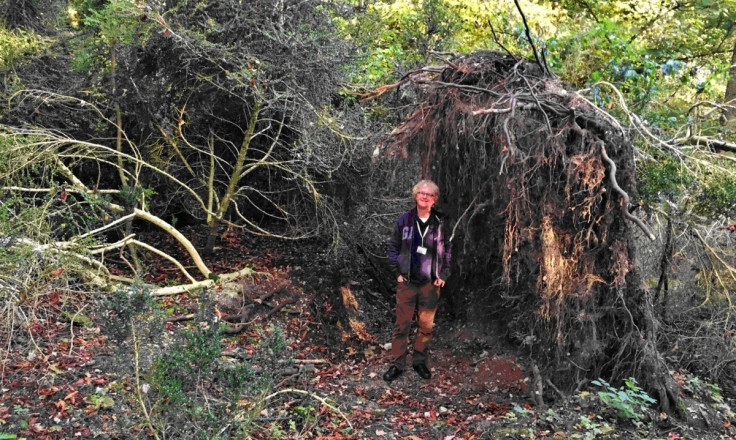Prehistoric 6,300-year-old 'eco-home' found near Stonehenge

Archaeologists from the University of Buckingham have discovered an "eco-home" that was used by settlers around 6,000 years ago near to Stonehenge. Experts claim that the home is eco-friendly as the inhabitants used a tree that had fallen and hollowed to create their shelter.
It measures 9m in length and 3m high and was found near to Blick Mead – a mile from Stonehenge. It was first used around 6,300 years ago, making it at least 1,300 years older than the prehistoric monument, and was inhabited for 90 years.
Furthermore, where the tree had fallen, a 3m pit had been left in its wake. The team from the University say that this pit had been lined with cobbles. More evidence that our long distant relatives were eco-friendly was found when archaeologists discovered a number of large stones by the walls that could have been used as primitive "storage heaters".
University of Buckingham's Archaeology Project Director David Jacques said: "This is a key site for where Britain began. It is the only continuously occupied Mesolithic site in Western Europe and we believe the 'eco-home' is the sort of place the first Brits lived in. Something at Blick Mead kept attracting generations back to the site, the cradle of Stonehenge."
He told The Guardian: "Rather than seeing these people as making do with anything nature happens to throw up, a better way is that, environmentally, they are amazingly well-attuned and have a skilful and sophisticated understanding of the landscape. They are adapting themselves around it."
The site is now under threat, however, with the government considering building a 2.9km (1.8 mile) tunnel nearby for the A303 main road. Jacques added in a press release: "[The inhabitants of the 'eco-home'] are adapting to nature in a really sophisticated and intuitive way, in contrast to our government in the 21st century who are expecting nature and our history to adapt to our needs to build a tunnel through this precious countryside."
© Copyright IBTimes 2025. All rights reserved.






















